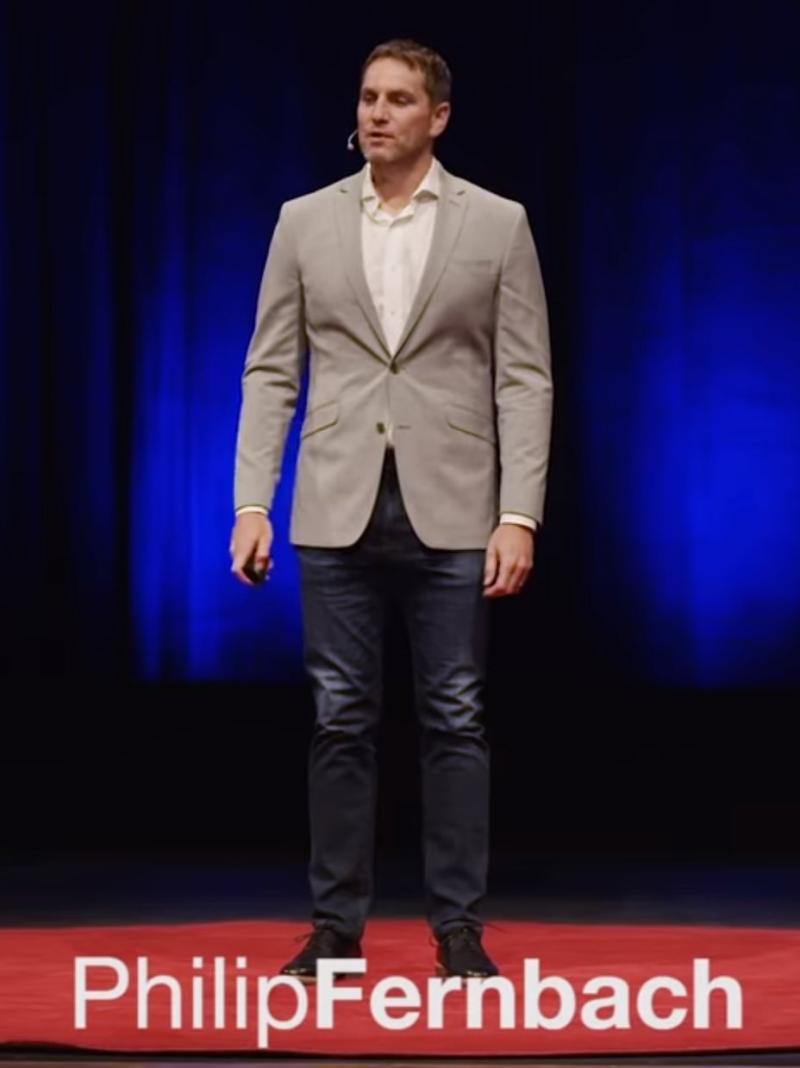Why do we believe things that aren't true?


... it's actually incredibly difficult to design a cognitive system that's capable of collaboration. This is really the secret to our success, it's what separates us from all other thinking creatures.

In summary, the speaker holds that human beings are not super great at holding mountains of detailed information. Rather, we rely upon others as trusted sources. In this way we 'know' far more than what we actually know. But the key, of course, is to have a reliable method to gather the information we need and determine the credibility of the sources upon which we rely.
And it turns out that a similar thing happens when you surf the Internet. Just having access to all of that information makes you feel like you know a lot more than you do.
This sense of understanding is contagious. And when contagious understanding is paired with individual ignorance, it can be a toxic recipe. The danger is that I may express a strong belief because I feel like I understand. But my sense of understanding is false. It comes from those around me, expressing strong beliefs, because they feel like they understand. But their sense of understanding comes from those around them and so on. Individually, none of us knows enough to tell what's true and what's false. And yet, because we feel like we're on firm ground, we don't do enough to verify, and that is how entire groups of people can come to believe things that aren't true.
Tags
Who is online
42 visitors


This purpose of this seed is to give us a reason to pause and think about what we really know and why we think we know it.
Throughout our history, human beings have relied upon each other for information. This behavior is in our genes — we are born predisposed to believe what we are told. It takes effort (critical thinking) to go the extra step beyond mere acceptance to scrutinize the information. Beyond assessing the credibility of the source, this means gathering corroborating facts and using reason.
It is so much easier to just accept what others claim as truth and run with it. Politics and religion are replete with examples of people accepting without question and then repeating the 'information' to others.
The title is more informative than the content. "Why Do We Believe Things That Aren't True?" What that suggests is that belief is more important than knowledge. Belief is actually what allows human progress.
Progress is measured by results, not by truth. In many respects, a desired result is the ultimate truth. But the desirability of any given result achieved through collaborative effort is based upon belief and not knowledge. We believe truths; we do not know truths.
As Philip Fernbach points out, as individuals we know very little. However, collectively humans possess a vast amount of knowledge. But human collective effort is actually established by belief; collective utilization of knowledge is only part of an effort whose desired result has been chosen by belief.
Dr. Fernbach begins with belief in a flat earth. Yes, it's easy to show that a flat earth model is incorrect. But that flat earth model can be very useful in achieving a desired result. A flat earth model may not be objectively true but it is true enough to achieve desired results. The desired result is the ultimate truth; the knowledge required to achieve that result doesn't need to be objectively true, just true enough.
The essence of his talk is believing things that are NOT true. Basically, why are we predisposed to believe what we are told rather than operate skeptically?
The biological answer I gave is that this has clearly worked for our ancestors. We are the progeny of human beings who operated on trust more than verify.
The question now is if this remains a good thing. Clearly the flat Earthers and cults (e.g. Heaven's Gate) would be better served questioning what they are told rather than blindly accepting it. Engineering accomplishments are a prime example of working on verified trust. No credible engineer will trust a new material for structural purposes without verifying that the material can support the stress of the application.
So, yes, it is more expedient to just accept what others state as truth. And we are prone to do this. I think it is well worth the effort to break free of this quick and dirty approach and engage in critical analysis. Always seek to verify before you trust.
But Dr. Fernbach also explains that an individual isn't capable of possessing adequate knowledge to independently verify truth. Skepticism requires believing the knowledge of others is true for a given circumstance. Truth does not depend upon knowledge; truth depends upon belief.
An engineer is not paid to be correct. Engineers are paid to be just correct enough. An engineer doesn't need to know the chemical composition of the material or its crystalline structure. An engineer only needs to know the load bearing capacity of the material and add a safety factor. An engineer doesn't need to know everything that can be known about the material. Empirical knowledge is adequate to achieve a desired result. The desired result is the ultimate truth.
But knowledge is not truth. Knowledge may be verified as true but doesn't provide truth. Accepting truth requires belief. Verifying knowledge may support accepting a truth but isn't a necessity.
Not to the level of absolute truth. Clearly, there is no way the engineer in my example could verify the structural integrity of a material without going into the lab and testing it himself. There is a level of scrutiny where we do have to trust (e.g. in this example the engineer would review the engineering specifications and the manufacturing methods). But that is far better than simply taking the salesperson's word that the material will meet the engineer's structural needs.
No, that is not truth. Something is not true simply because you believe it.
The word 'knowledge' has many usages and not all of them translate into 'awareness of truth'. So I agree one should not equate knowledge with truth.
Accepting a falsehood also involves belief. The fact that you believe something does not make it true.